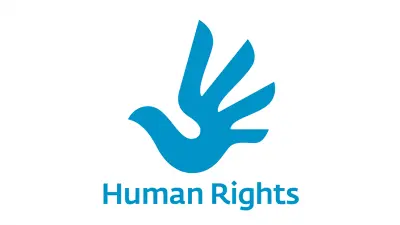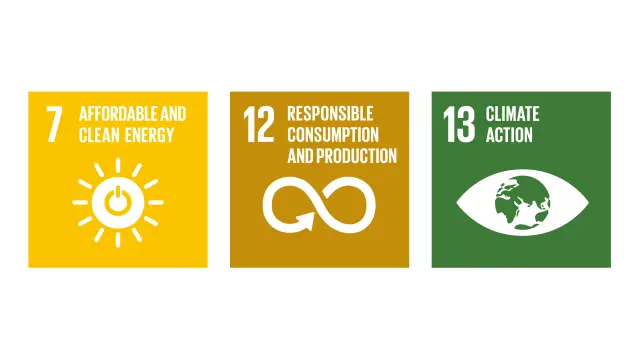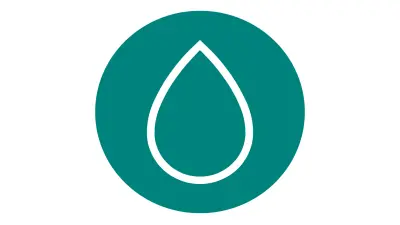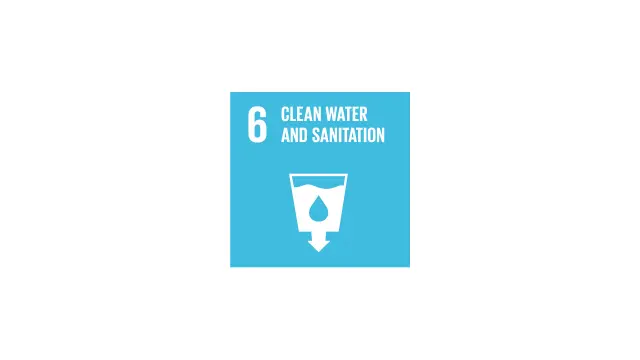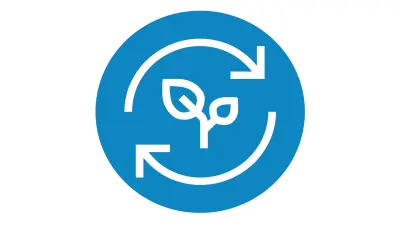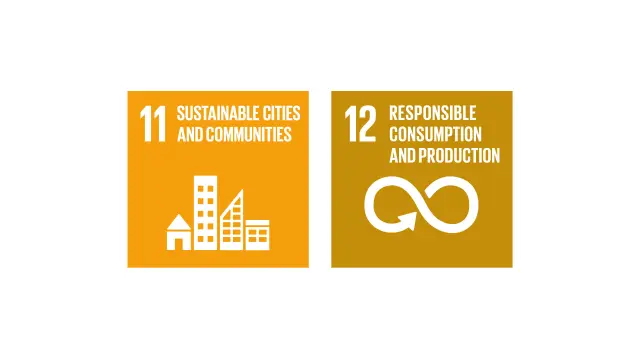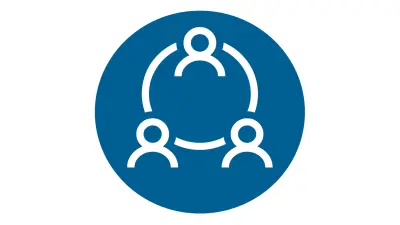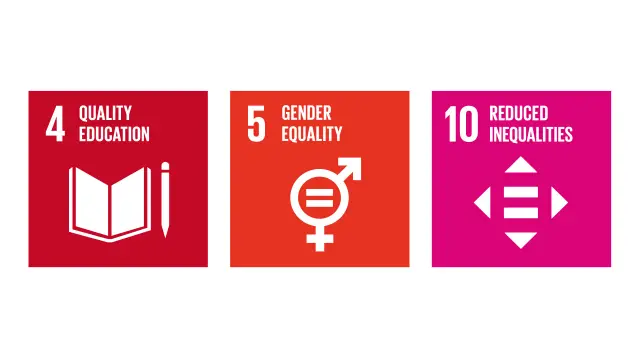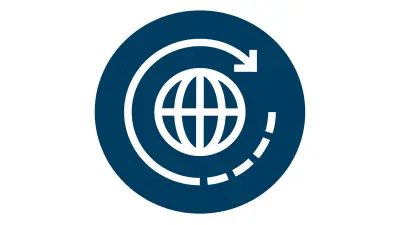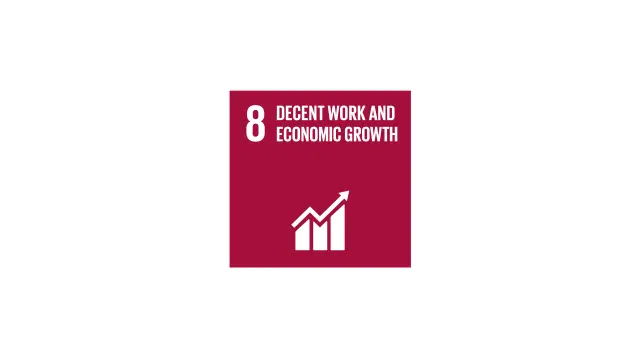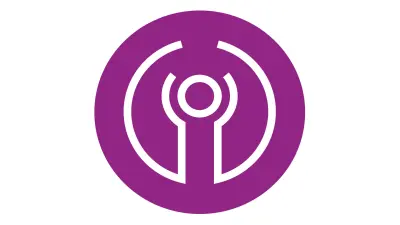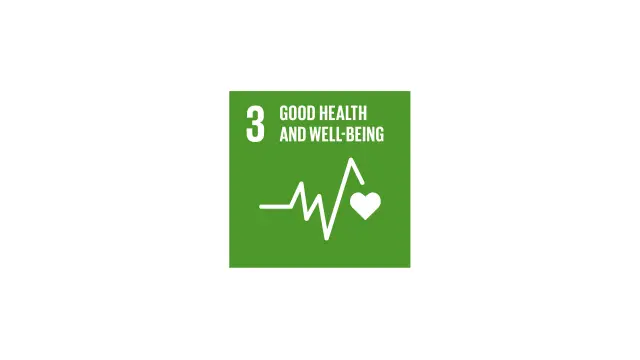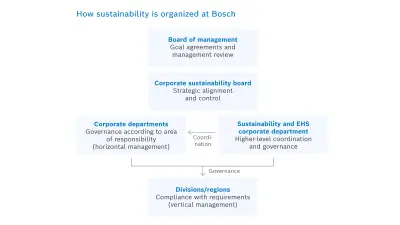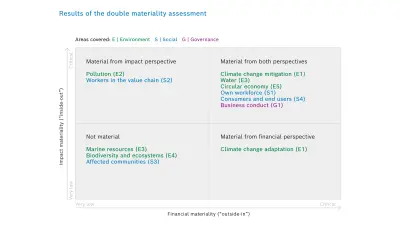Sustainability strategy and compliance
Clear strategy for more sustainability
Bosch’s sustainability strategy is based on concrete objectives in all focus areas. We have for many years now been consistently working to realize those objectives.
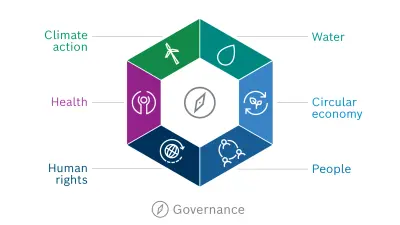
We see sustainability as the balance between the economic, ecological and social dimensions of our business activities as part of responsible corporate governance.
We have summarized the focal points of our sustainability management in the “New Dimensions” target vision. It describes six topic areas that set the framework for our activities in the coming years.
Respect for human rights
As a globally operating company, we recognize our corporate responsibility to respect human rights.
By implementing human rights and environmental due diligence obligations in our operational processes, we contribute to improving human rights conditions worldwide. At the same time, we actively demand respect for human rights in our global supply chains as well and take appropriate remedial action in the case of violations.
- Declaration of Principles on Human Rights of the Bosch Group
- 2024 Report on the German Act on Corporate Due Diligence Obligations in Supply Chains
Our business activity is aligned to the United Nations Guiding Principles on Business and Human Rights and we comply with the requirements of the National Action Plan for Business and Human Rights applicable in Germany. We implement the requirements of the German Act on Corporate Due Diligence Obligations in Supply Chains (Lieferkettensorgfaltspflichtengesetz, LkSG). Bosch also meets other country-specific requirements, such as the Modern Slavery Act in the UK or the French Loi de Vigilance.
We likewise expect our business partners to commit to respect human rights, to establish appropriate due diligence processes, and to oblige their own suppliers and other third parties to comply with corresponding principles to the best of their ability.
